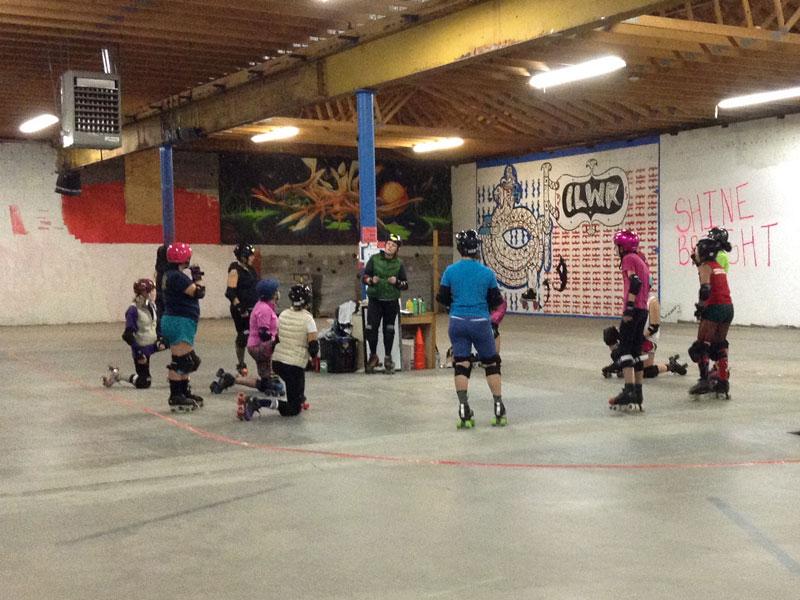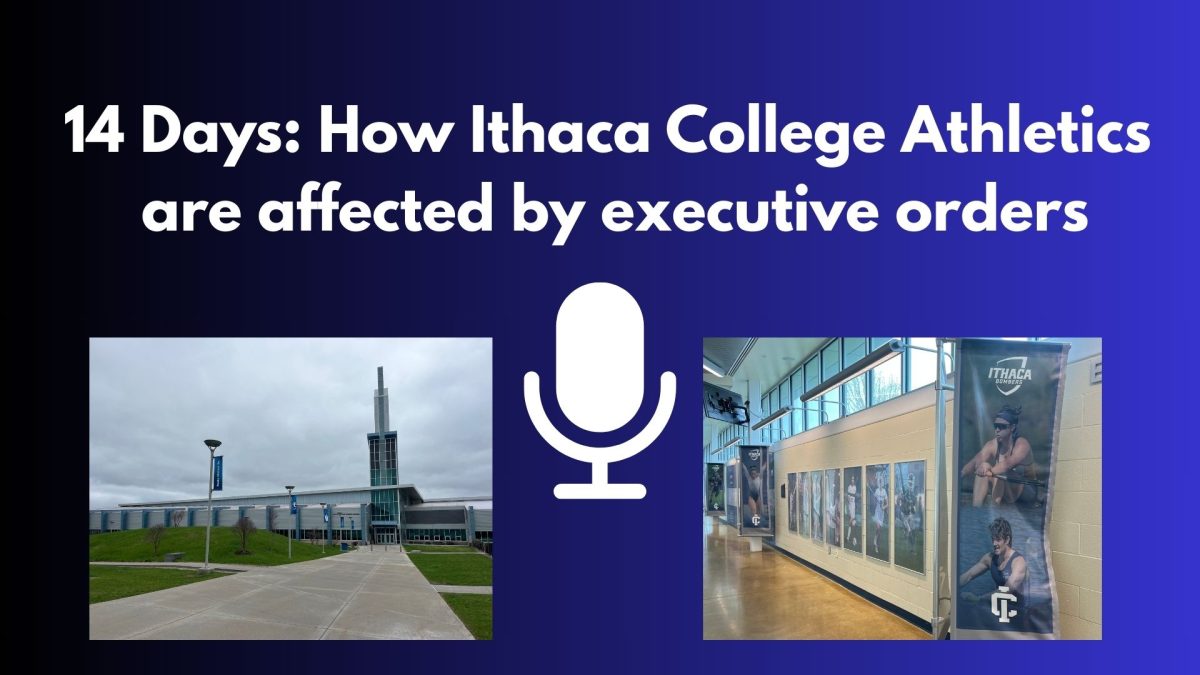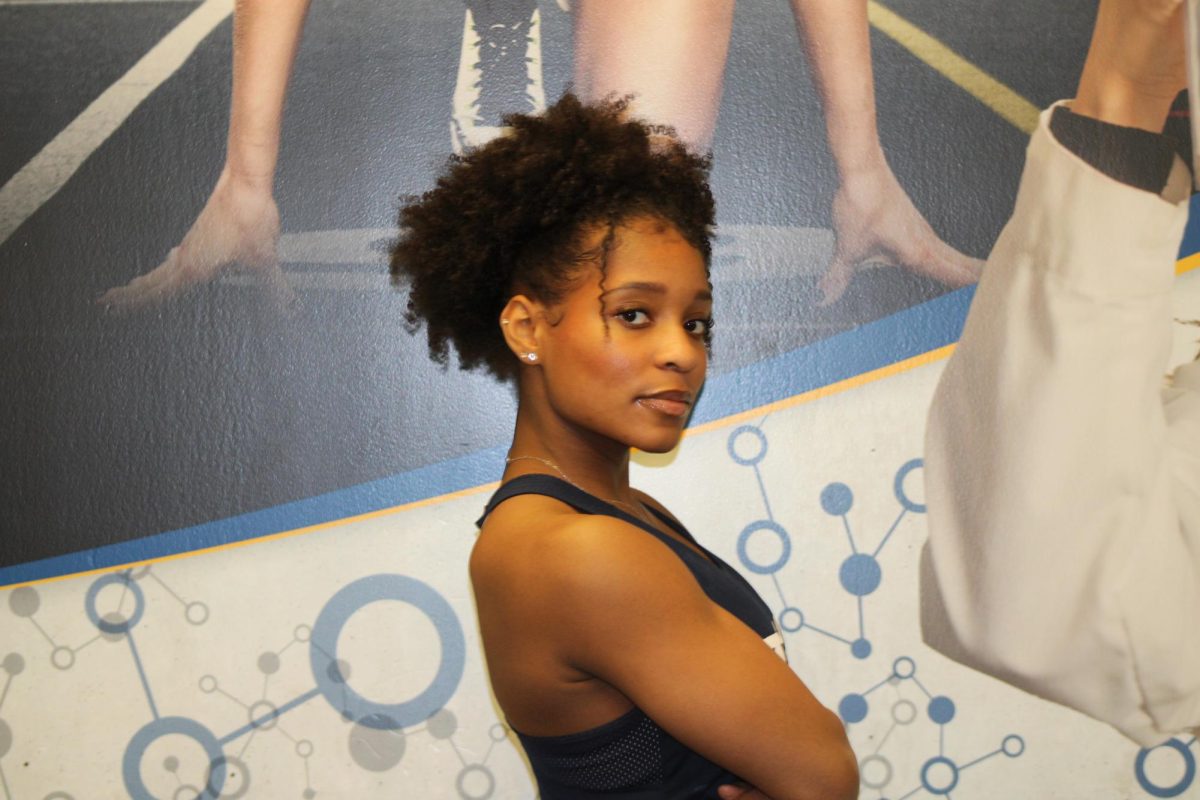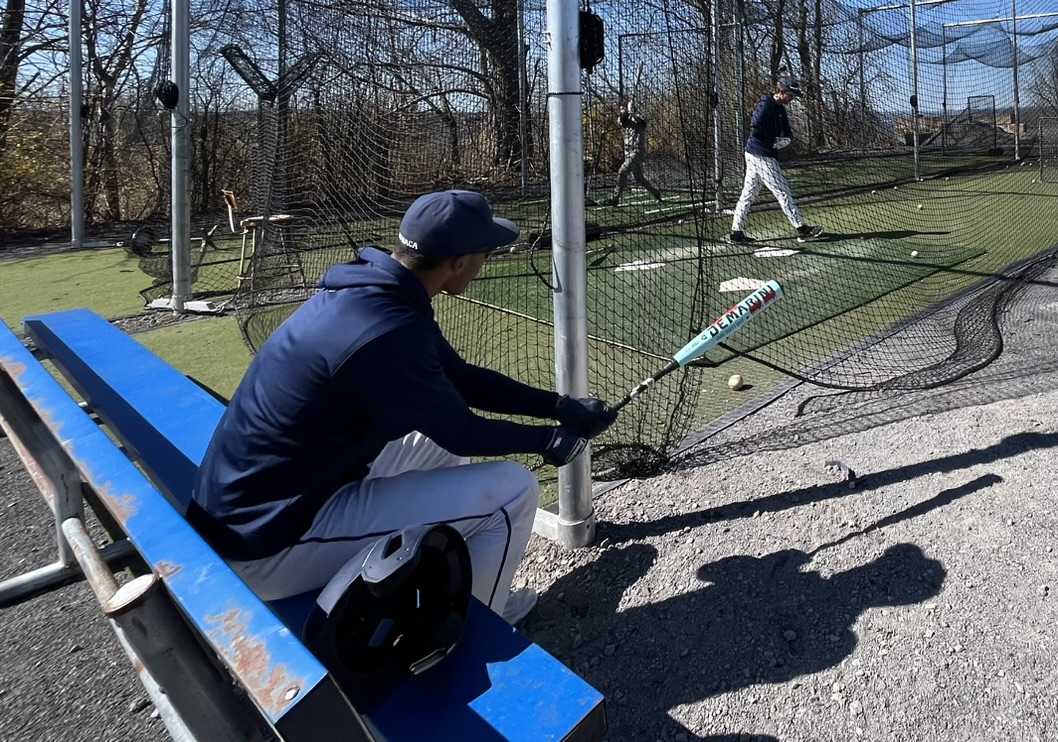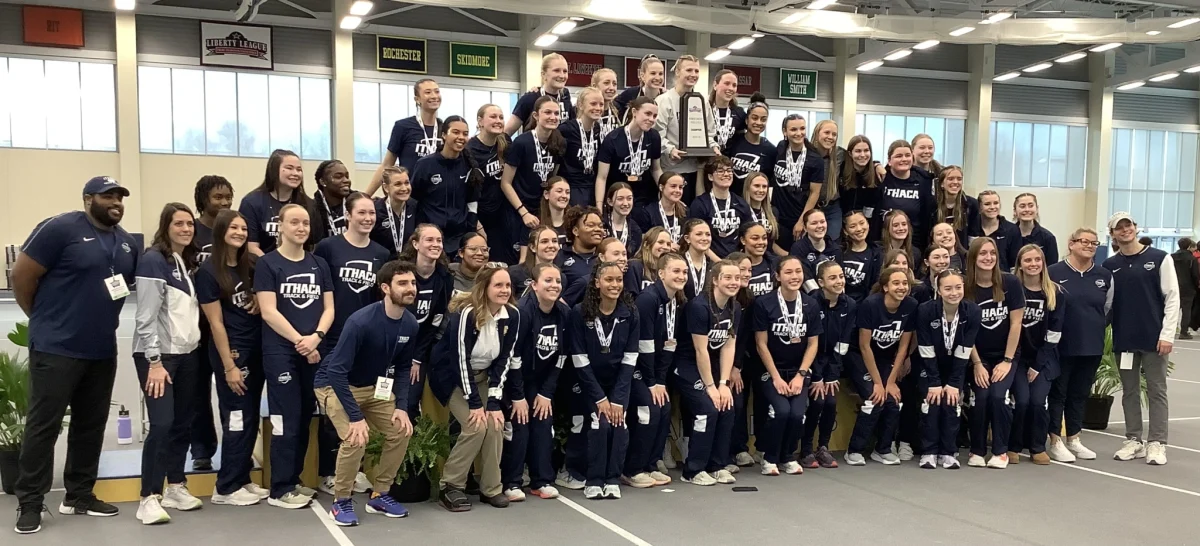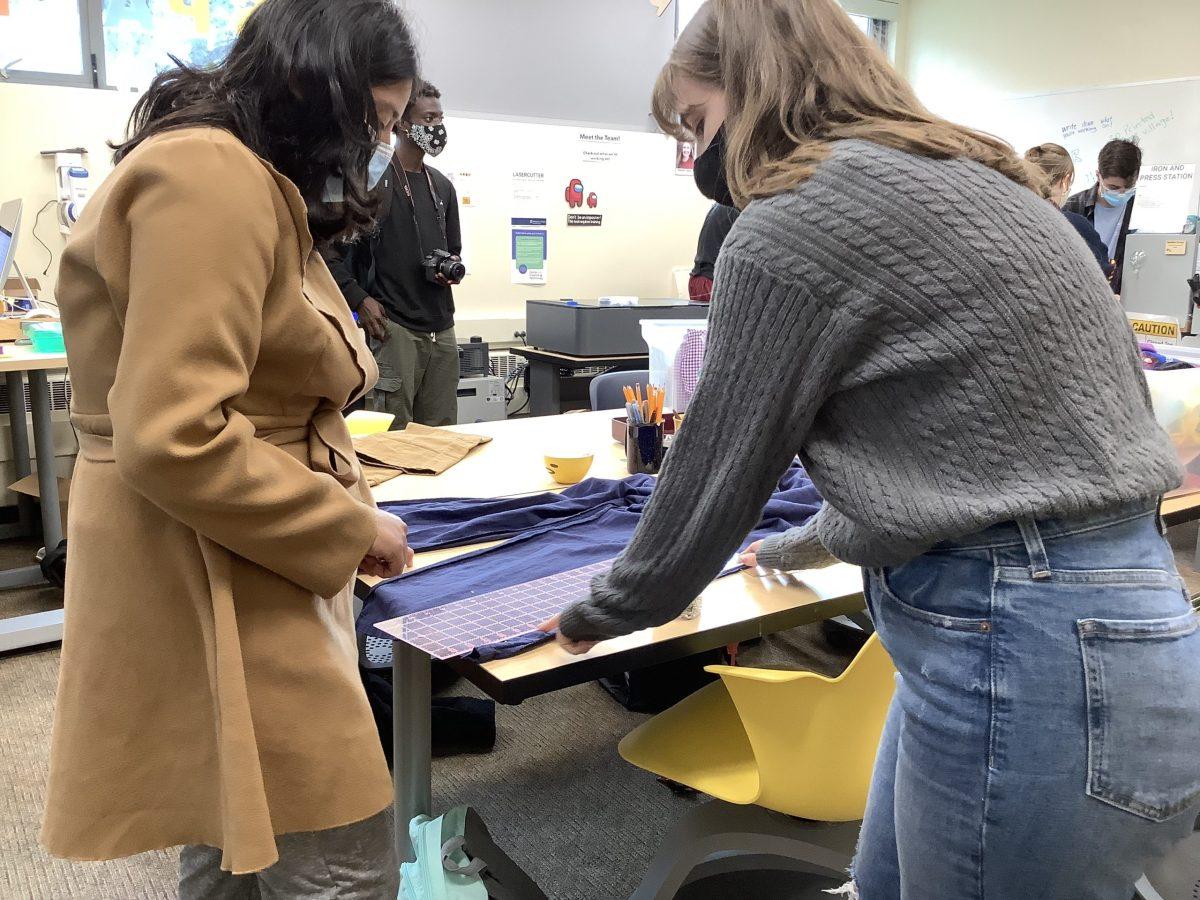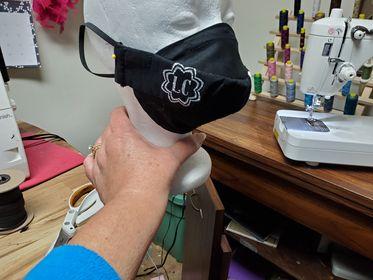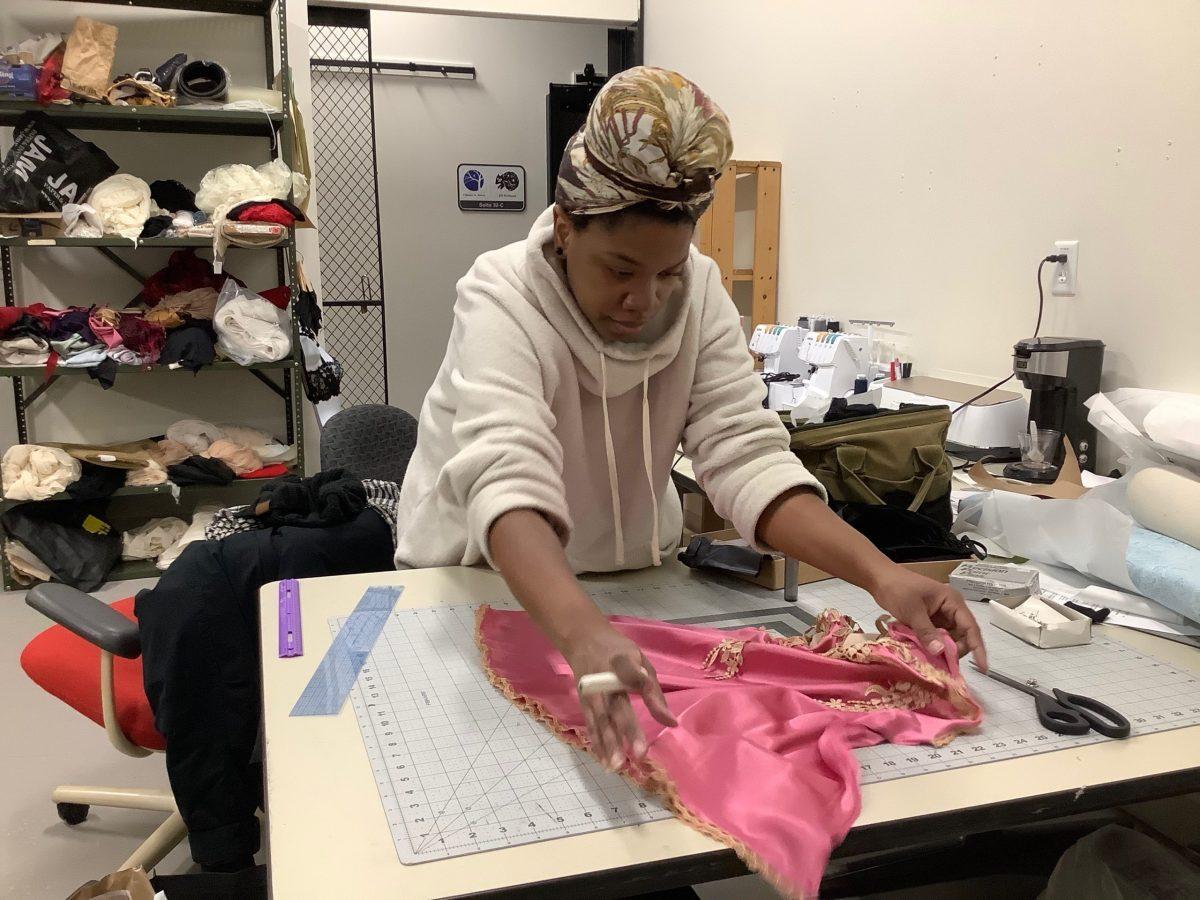About 12 women strapped on knee pads, helmets and skates Thursday evening to participate in the Ithaca League of Women Rollers’ Freshmeat Training.
The ILWR’s Freshmeat Training program began Oct. 20 and takes place until Dec. 17 on Tuesday and Thursday evenings at ILWR’s training facility in Lansing. The training is open to women over 18 years of age who have health insurance, and participants are not required to have previous skating or derby experience.
Allison Ditzig, an Ithaca College junior going through the training, said why she was motivated to participate: “Aggression and pent-up teenage angst that still exists. We’re all emo boys at heart, deep down.”
Roller derby is a contact sport dominated by women, and Ithaca’s two teams are both female-only. Players wear skates and compete in teams of five while skating around an oval-shaped track. A designated player on each team, the “jammer,” tries to lap the players of the other team. The rest of the players, the “blockers,” work together to prevent the competing jammer from passing them on the track.
Participants begin Freshmeat Training by learning the basics of skating, falling safely and posture. Current roller derby players take turns leading the women through drills and exercises, said SufferJet skater Amanda Arends, who is known as Manda Tori Chaos on the track. Arends led the training session on Oct. 29.
“Right now, they’re just learning the basics on how to stop, how to fall if they fall, using their gear and everything safely,” Arends said. “Footwork is important, and eventually we’ll take it up to another step where they’re going to learn how to hit each other. And that’s pretty much it.”
Some participants said they hope to join one of Ithaca’s two roller derby teams, the SufferJets and the BlueStockings. Others said they have different goals from the training.
“Of course I would like to say I’ll pass Freshmeat and try out for the team, and I would love to do that,” participant Morgan Hapeman said. “But being realistic, I’m older than most of the rest of them… So I don’t, realistically, expect to pass. But at least I’ll be a better skater and can keep skating and try again next year.”
Freshmeat Training is broken into two parts: the first four weeks consist of basic skills such as skating, stopping and increasing endurance. Those who master these skills then move on to the second portion, when they learn how to block and hit one another safely.
Those who pass Freshmeat Training can then try out for the competitive roller derby teams.
“I want to be on a team, if I’m deemed worthy,” Ditzig said.
But for Arends, she said she believes safety and self-positivity are the most important things during Freshmeat Training.
“Mainly we just want everyone to feel safe and secure on their skates,” Arends said. “Right now we want to build up that self-esteem and power them farther, if they want to. Or go as far as they want.”

